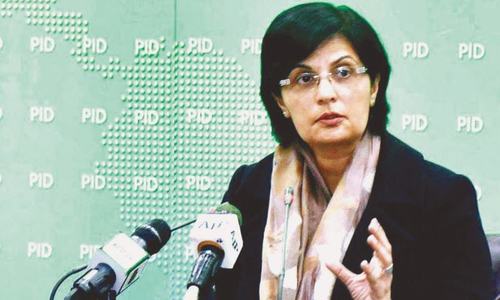ISLAMABAD: A sub-committee of the Public Accounts Committee (PAC) has cast doubt on the process that led to the eventual removal of over 800,000 people from the list of beneficiaries of the Benazir Income Support Programme (BISP).
On a query by Sherry Rehman, the committee’s convener, the BISP’s secretary conceded that out of the 820,165 beneficiaries excluded from the list, 42 per cent were removed because they were found to have travelled abroad.
The secretary informed the committee that Rs8 billion has been allocated for payment to three non-governmental organisations (NGOs) and a private company entrusted with upgrading the capacity of his organisation to carry out surveys.
The three NGOs are: the Sustainable Development Policy Institute, the Rural Support Programme Network and the Aurat Foundation. The private organisation is known as Innovative Development Strategies (IDS).
Senator Mushahid Hussain Syed pointed out that according to his information, the three NGOs were known for executing community-based projects while the IDS was an unknown entity to him.
The BISP official apparently failed to convince the Public Accounts Committee that the hiring of NGOs and an unknown company for carrying out surveys was the right decision. The members felt that the Pakistan Bureau of Statistics (PBS) could have done the job.
But the BISP secretary argued the PBS did not have the required capacity. He, however, went on to inform the sub-committee that since the NGOs were unable to secure a no objection certificate (NOC) for conducting surveys in Khyber Pakhtunkhwa, Gilgit-Baltistan, Azad Jammu and Kashmir, and in Narowal and Sialkot districts, the PBS had been asked to carry out a survey in these areas.
Ms Rehman made an observation that had Rs8 billion been provided to the PBS, it could have upgraded all its facilities and conducted the survey for preparation of poverty score card.
Dwelling on the scrutiny of the BISP beneficiaries list, the secretary told the committee that the decision to examine the list was taken on Dec 12 and the entire exercise was completed in a couple of weeks.
Sherry Rehman said it was probable that some of the beneficiaries had travelled to Saudi Arabia for sponsored Haj or Umrah. The BISP secretary retorted that if someone can pay Rs400,000 to an individual for Haj, the same sponsor can part with a smaller amount of Rs1,650 for financial support of that person.
Likewise, he added, if someone can pay Rs5,000 on applying for a passport through executive counters, that person does not need such a meager sum as financial support.
Out of over 800,000 beneficiaries removed from the list, 140,000 were government employees, including over 2,500 officers in BS-17 and above. Ms Rehman asked him to provide details about such officers.
Published in Dawn, January 31st, 2020














































